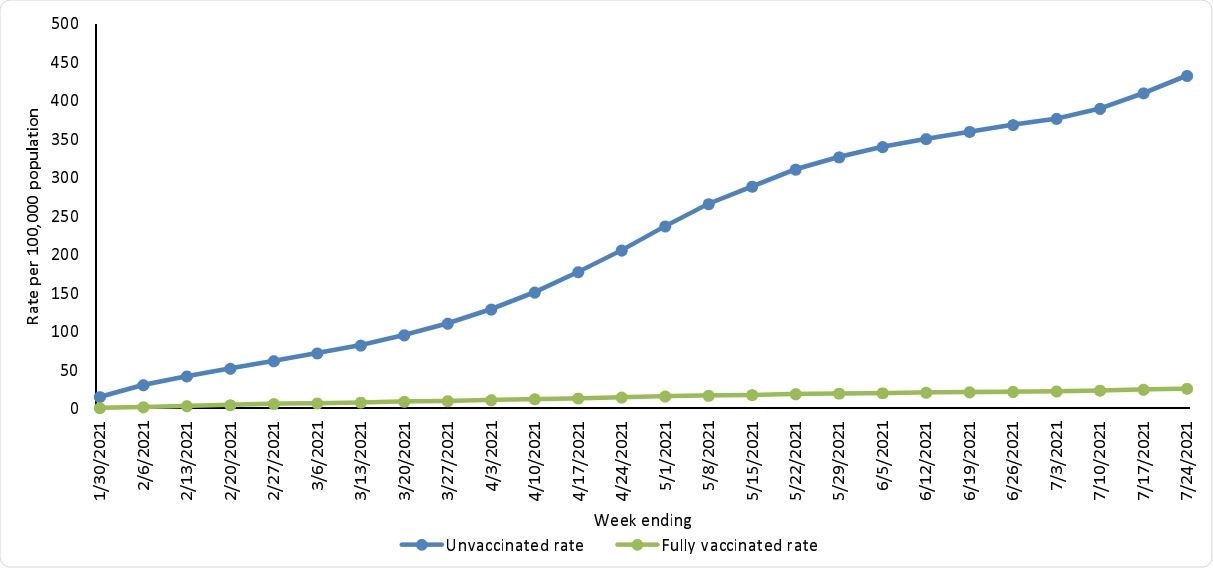In the USA, more than 60% of the adult population have been vaccinated against COVID-19 by August 2021. Currently, two mRNA-based (Pfizer/BioNTech and Moderna) and one adenovirus vector-based (Johnson & Johnson) COVID-19 vaccines are available in the USA. According to available literature and the Center for Disease Control and Prevention (CDC) reports, all these vaccines are safe and highly effective in preventing severe COVID-19 and related hospitalization. Although breakthrough infections can occur in fully vaccinated individuals, the nature of infection is expected to be mild or asymptomatic.
Unfortunately, with the emergence of more deadly variants of severe acute respiratory syndrome coronavirus 2 (SARS-CoV-2), including the delta variant, vaccine breakthrough cases with severe COVID-19 have been identified across the globe. However, the risk of hospitalization among vaccine breakthrough cases remains largely unknown.
The study
In the current study, the scientists have analyzed the risk of COVID-19 related hospitalization and clinical outcomes in vaccinated and unvaccinated individuals. Moreover, they have examined the characteristics of hospitalized vaccine breakthrough cases.
They have collected hospitalization-related information from the population-based COVID-19-Associated Hospitalization Surveillance Network (COVID-NET) that contains details of more than 67,000 COVID-19 related hospitalizations between January and June 2021. Moreover, they have used the state immunization information system to compare the population-based hospitalization rates per week in vaccinated and unvaccinated individuals. This comparison analysis includes cases identified between June and July 2021 when the delta variant was predominantly circulating in the USA.
Important observations
A total of 67,311 hospitalized adults with laboratory-confirmed COVID-19 were identified between January and June 2021 in the COVID-NET. Of them, 35,846 were found to have vaccination information linked to the state immunization information system. Among these individuals, 87.6% were unvaccinated, 5% had received first vaccine dose less than 14 days before hospitalization, 4.4% had received the second vaccine dose less than 14 days before hospitalization (partially vaccinated), and 3% had received the second vaccine dose more than 14 days before hospitalization (fully vaccinated).
The percentage of hospitalized vaccine breakthrough cases increased from 0% in January 2021 to 16% in June 2021. In June, about 32% of all hospitalized individuals aged above 65 years were found to be fully vaccinated.
Vaccination status and patient characteristics
The analysis was conducted on a representative population of 4,732 hospitalized patients with confirmed COVID-19. Of them, 4,440 were unvaccinated and 292 were fully vaccinated. The average duration between full vaccination and hospitalization was estimated to be 42 days. Among adults aged above 18 years, fully vaccinated individuals with breakthrough infections were significantly older than their unvaccinated counterparts and were more likely to be residents of long-term care facilities.

Age-adjusted population-based rates of COVID-19-associated hospitalizations among unvaccinated and fully vaccinated adults aged ≥18 years admitted January 24–July 24, 2021, A) cumulative and B) by week of admission — COVID-NET, 13 States
Similarly, vaccine breakthrough cases were significantly more likely to be immunocompromised or were with multiple comorbidities compared to their unvaccinated counterparts. Among individuals aged above 65 years, fully vaccinated patients were more likely to be immunocompromised or obese compared to unvaccinated patients. Similarly, among individuals aged below 65 years, fully vaccinated patients were more likely to have neurological or gastrointestinal complications.
Although both vaccinated and unvaccinated patients showed similar susceptibility to intensive care unit (ICU) admission and mortality, fully vaccinated patients aged above 65 years were significantly more protected against these risks. A significant correlation was observed between full vaccination status and reduced risk of severe COVID-19.
Vaccination status and hospitalization rate
The analysis of population-level hospitalization rates between January and July revealed that the risk of COVID-19 related hospitalization is 17-times higher in unvaccinated patients compared to that in fully vaccinated patients. Between June and July, a 10-fold higher hospitalization rate was observed in unvaccinated patients compared to that in fully vaccinated patients.
Study significance
The study findings reveal that COVID-19 vaccines can provide significant protection against severe disease in adults and older adults. Overall, the study highlights the importance of vaccination in reducing the risk of severe COVID-19 and associated hospitalization.
Source